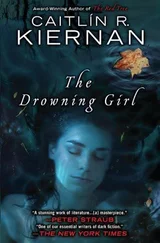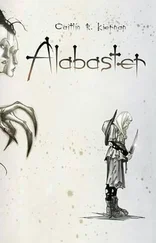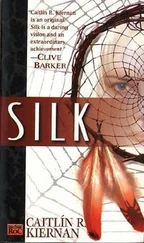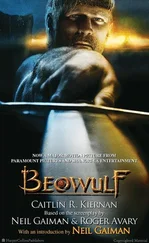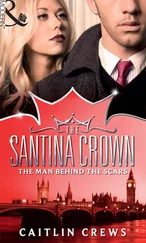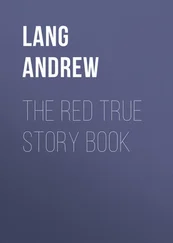Caitlin R. Kiernan - The Red Tree
Здесь есть возможность читать онлайн «Caitlin R. Kiernan - The Red Tree» весь текст электронной книги совершенно бесплатно (целиком полную версию без сокращений). В некоторых случаях можно слушать аудио, скачать через торрент в формате fb2 и присутствует краткое содержание. Жанр: Ужасы и Мистика, на английском языке. Описание произведения, (предисловие) а так же отзывы посетителей доступны на портале библиотеки ЛибКат.
- Название:The Red Tree
- Автор:
- Жанр:
- Год:неизвестен
- ISBN:нет данных
- Рейтинг книги:3 / 5. Голосов: 1
-
Избранное:Добавить в избранное
- Отзывы:
-
Ваша оценка:
- 60
- 1
- 2
- 3
- 4
- 5
The Red Tree: краткое содержание, описание и аннотация
Предлагаем к чтению аннотацию, описание, краткое содержание или предисловие (зависит от того, что написал сам автор книги «The Red Tree»). Если вы не нашли необходимую информацию о книге — напишите в комментариях, мы постараемся отыскать её.
The Red Tree — читать онлайн бесплатно полную книгу (весь текст) целиком
Ниже представлен текст книги, разбитый по страницам. Система сохранения места последней прочитанной страницы, позволяет с удобством читать онлайн бесплатно книгу «The Red Tree», без необходимости каждый раз заново искать на чём Вы остановились. Поставьте закладку, и сможете в любой момент перейти на страницу, на которой закончили чтение.
Интервал:
Закладка:
“You don’t know ?” she asked.
“I don’t know,” I replied.
“Then it’s not for me to tell you, I suspect. But you ask Mr. Blanchard. You got a right to know.”
I told her that Blanchard, the landlord, is away on some sort of farm-related business, a fertilizer convention or sheep-dippers’ conference or something of the sort, and that I wouldn’t be seeing him again for at least a week, and probably longer than that (he lives up in Foster and hardly ever comes out this way). But, no dice. She wouldn’t say more, and returned, instead, to the history of the old store, and a cider mill that used to be somewhere nearby, and something about the cemetery where her father is buried, and all that sort of thing. Local color. And I listened politely, deciding I shouldn’t press her regarding the former tenant, whatever it was about him or her I should know, that she felt I had a right to know. All Blanchard ever said was that a professor from URI rented the place before I came along, but I know it’d sat empty for more than two years.
Not long after I got back to the house, there was a phone call (because I forgot to turn off my damned cell), Dorothy wanting to know if I was settled in, how I was getting on out here, was I homesick, and, finally, when she could no longer put it off, had I made any progress on the novel. I almost hung up, because she knows I have not even started the goddamn novel. But, Dorothy is a good agent, and those don’t grow on trees, and I might still need her someday. She reminded me, tactfully, but unhelpfully, that publishers who have paid out sizable portions of sizable advances eventually expect manuscripts in return, no matter how much money I might already have made for them on my previous books. I could have lied and said the writing was going well and not to worry. But where’s the fucking point? The deadline is only six weeks off now, and that’s not the original deadline. That’s the extension on the original deadline, and so then we talked about the feasibility of a second extension, say six or eight months. Dorothy gets this tone in her voice at times like that, and I feel like I’m a kid again, talking to my mother. But she said she would call my editor next week. At least she didn’t ask about my health. At least that’s something.
Oh, I finally unpacked my Waterman pens. I’m using the “diamond-black” Edson I bought in Denver last year. I have consigned the yellow pencil stub to a drawer. On a whim, I seriously considered burying the damned thing, but then I started worrying over whether the graphite (a form of carbon, I believe) would be bad for the earthworms and moles and such. I think I read somewhere that residual graphite is harmless, but I’ve already got enough on my conscience without having to worry about whether I’ve poisoned the grubs. I’ll do my best to keep making entries in this notebook. The pens make it much easier, and it’s not like I’ve got a hell of a lot else to do, is it?
I have been awake maybe twenty minutes, and the nightmare is still buzzing about my skull like a hungry swarm of mosquitoes. Nothing, though, that I can conveniently swat away. Also, I have misplaced my glasses, and, no matter how hard I squint, the blue college-ruled lines on this page shift and sway, grudgingly resolving for a few seconds at a time before they fade and blur again. Still, fuck the coffee, I’m going to get this down before I lose it. Last night, I read back over my two previous entries, and hell, they don’t even sound like me. They sound like some pale ghost of my voice. Not even a decent echo. What does a writer become when she can no longer write? What’s left over when the words don’t come when called? What did Echo become after she was slaughtered for spurning Pan, or after her collusion with Zeus was discovered and so she was punished by Hera, or after her rejection by Narcissus? Those pages seem, at best, my own echo, a waning, directionless cry in this wilderness to which I have exiled myself. But, the dream. Write down the dream and save the rest for later. Write down what you can recall about the dream.
I was at the kitchen table, just as I am now, smoking and staring out at the shadows gathering as the sun set, the afternoon melting into twilight. I could see the dark smudge of Ramswool Pond, and the low, rocky hills around the farm, the trees pressing in, new-growth trees where once there were fields for grazing sheep and apple orchards and whatever else. I was sitting here, smoking, and the longer I watched, the more unnerving the shadows became, as the coming night drew them ever sharper. I felt as though they were becoming substantial, corporeal things, and that the sun’s retreat westward was releasing them from unseen prisons, below the ground or from out of unseen dimensions which exist, always, alongside this visible world. There were no lights on in the house, I think, and it had already fallen into darkness around and behind me, and that darkness seemed inhabited, populated by dozens of muttering men and women. I would try to make out what they were saying, but always their words slipped away from me. And all the while, I suspected the murmuring was meant to distract me from all that lay outside the kitchen window. With hindsight, I might even be so reckless as to guess that this intent was merciful. But, since I could not make head nor tails of the murmurers’ attempts at communication, I watched the window, instead. I realized here that I was not sitting in the kitchen of Mr. Blanchard’s old farmhouse, but in a small screening room, a movie theater, and the window was, in truth, a screen. It’s a cheap fucking trick, the kind of unimaginative, low-budget legerdemain at which dreaming minds seem to excel or in which they only compulsively indulge. I sat in my theater seat and stared out the window, which was now, of course, merely the projected image from concealed mechanisms hidden somewhere behind me, flickering moments fused to celluloid. The muttering voice had become other members of the audience, though I could not actually see any of them (and I am not certain that I tried). I don’t often go to the movies. But Amanda liked to, so she usually went without me. That was something else we might have shared, but I couldn’t be bothered.
On the screen, I see the kitchen’s window frame, and the fallow, overgrown land beyond, and I see the shadows growing bolder. And then I see you, Amanda, and you’re standing with your back to me, but, still, I know it’s you. You’re standing at the first of the stone walls, staring out towards the flooded granite quarry. Your shoulders are slumped, your head down, almost bowed, and you’re wearing a simple yellow dress, and even though you are too far away for me to make out such details, I can see that the fabric has been imprinted with tiny flowers of one sort or another, a yellow calico. Your long hair hangs down as though you wear a veil, and it’s matted and tangled, as if you haven’t combed it in days and days. That’s so unlike you, and I began, here, to suspect I was only dreaming, because you’d never be out with your hair in such a dreadful state, not out where someone might see you.
And then the deer are coming out of the shadows gathered beneath the trees, and there are other animals, though it’s hard for me to be sure what they are. Animals. Things smaller than the deer, things that move swiftly, mostly creeping along nearer to the ground. I think the deer are all coming to you, that possibly you have called them somehow, and I think, for a second or two, I am delighted at the thought and wonder why you never told me you knew how to call deer. I think back on the stories you told me about your childhood in Georgia, that your father was a hunter, so I consider that maybe it was a talent you learned from him. And it occurs to me now that, a page or two back, I shifted fucking tense, past to present. I fucking hate that, but I’m still so asleep and afraid I’ll forget something important — that I have already forgotten — if I wait and try to wake up before putting this down.
Читать дальшеИнтервал:
Закладка:
Похожие книги на «The Red Tree»
Представляем Вашему вниманию похожие книги на «The Red Tree» списком для выбора. Мы отобрали схожую по названию и смыслу литературу в надежде предоставить читателям больше вариантов отыскать новые, интересные, ещё непрочитанные произведения.
Обсуждение, отзывы о книге «The Red Tree» и просто собственные мнения читателей. Оставьте ваши комментарии, напишите, что Вы думаете о произведении, его смысле или главных героях. Укажите что конкретно понравилось, а что нет, и почему Вы так считаете.

